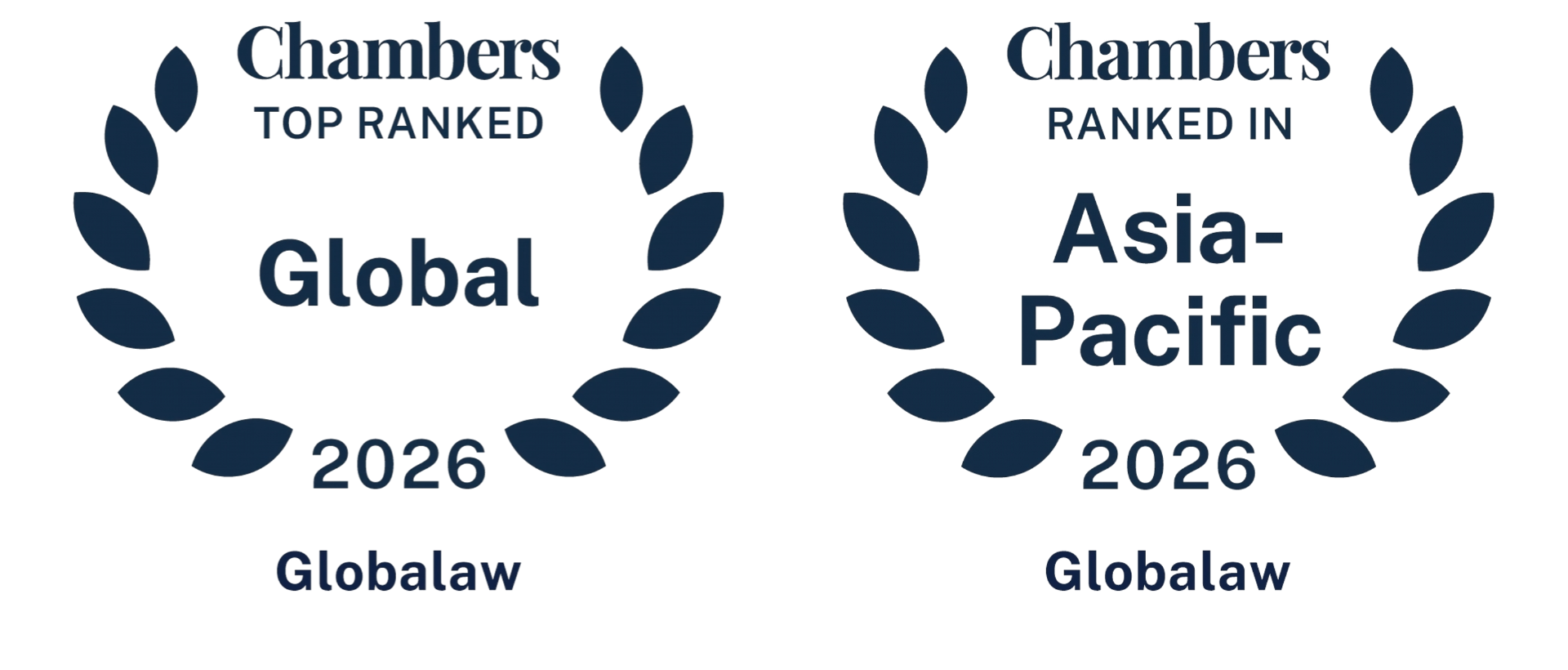August 2024
The August Month at a Glance features a recap of Globalaw Talks... International Deals and the latest Members' activities in July.
.png)
The August Month at a Glance features a recap of Globalaw Talks... International Deals and the latest Members' activities in July.
A Strategic Full-Service Firm with Regional & International Reach

Founded in 1998 by Jaime Roca, JJ Roca & Asociados (ROCA) has evolved into one of the Dominican Republic’s leading full-service law firms, recognized for handling complex, high-value matters for both local enterprises and multinational corporations.
Over more than two decades, the firm has grown deliberately and strategically, building a multidisciplinary structure capable of addressing corporate, regulatory, transactional, dispute resolution, and intellectual property matters with equal depth. While mid-sized by market standards, ROCA operates with the sophistication, coordination, and technical rigor expected by international clients operating across multiple jurisdictions.
Today, the firm is trusted by global companies to navigate not only Dominican law, but to act as regional counsel navigating the broader Caribbean and Central American legal landscape.
Purpose Shapes Every Client Experience
ROCA’s culture reflects a firm where excellence is the standard, service is personal, and every client relationship is treated as a long-term partnership.
“Culture is both our identity and our strategy,” said Partner Sharin Pablo de Roca. “We define it as a commitment to excellence, lived through service, collaboration, and genuine human warmth, and as a philosophy that guides every aspect of the client experience.”
ROCA pairs technical expertise with a proactive, solutions-oriented mindset, where clients can expect clarity, responsiveness, and legal work of the highest quality, delivered by a team that understands their business and anticipates their needs.
The firm’s attorneys and staff approach each matter with diligence, integrity, and a deep sense of responsibility to clients’ goals. Responsiveness, precision, and thoughtful guidance are part of their daily discipline.
Sharin says the firm believes that exceptional client service is strengthened by how teams work internally. By fostering an environment where professionals collaborate effectively, support one another, and lead with purpose, the firm ensures that its clients receive not only strong legal representation but also a consistent, high-quality experience across all touchpoints.
A Multidisciplinary Platform Built for Complex Work
ROCA’s practice is anchored in Corporate, Litigation, and Intellectual Property, but its capabilities extend well beyond these pillars. The firm regularly advises on mergers and acquisitions, restructuring and insolvency, banking and finance, capital markets, tax, real estate, administrative and regulatory matters, competition, data protection, foreign investment, free-zone operations, immigration, energy and environmental matters, and sector-specific regulatory frameworks.
This breadth allows the firm to assemble integrated teams tailored to each matter, ensuring that clients receive coordinated advice aligned with their commercial and operational objectives.
Rather than operating in silos, ROCA’s structure enables seamless collaboration across disciplines — a critical advantage when handling cross-border transactions, regulatory strategy, or high-stakes disputes.
Trusted by Multinational and Institutional Clients
ROCA’s client portfolio reflects the confidence placed in the firm by sophisticated international companies and financial institutions.
The firm serves as regional counsel to The Coca-Cola Company and its affiliates for the management, prosecution and enforcement of their trademark portfolio across all 26 Caribbean jurisdictions, and routinely conducts regional due diligence for major marketing launches.
ROCA acts as multiregional counsel to Western Digital Technologies, Inc., managing trademark portfolios in the Dominican Republic and throughout Central America and the Caribbean, including assignments tied to global corporate reorganization strategies.
The firm acts as local counsel to Les Laboratoires Servier SAS and its subsidiary Biofarma, handling complex opposition and cancellation proceedings and expanding coordinated IP strategies beyond the Dominican Republic.
In the financial sector, ROCA represents Scotiabank in significant litigation matters, and has advised institutional investors in high-value acquisitions and restructurings.
In the restructuring space, the firm acted as local counsel to the fund led by Amzak Capital Management in the acquisition and merger of Tricom, Telecable Nacional, and affiliated companies — the first and largest restructuring of a Dominican company under Chapter 11 of the New York Bankruptcy Code.
In dispute resolution, ROCA represented Swatch AG of The Swatch Group in coordinated global trademark litigation relating to the “IWATCH” mark, aligning Dominican strategy with actions in multiple jurisdictions worldwide.
These matters reflect not only technical capability, but also the trust placed in the firm to manage sensitive, high-stakes, and cross-border work.
ROCA’s capabilities in handling complex, cross-border matters with consistency and sophistication are reflected in its recognition by Chambers, The Legal 500, IFLR, WTR, IP Stars and other leading legal directories.
Globalaw Catalyzes International Reach
Since joining Globalaw three years ago, ROCA has actively contributed to the network’s collaborative initiatives. Sharin Pablo de Roca leads the Globalaw IP Initiative, facilitating coordination among IP practitioners worldwide and strengthening cross-border relationships within the alliance. She also serves on Globalaw’s Membership Committee for the Latin American and Caribbean region.
The firm regularly collaborates with fellow Globalaw members on referrals involving corporate structuring, regulatory compliance, IP protection and strategy, franchise regulation, data protection, and contractual risk management.
As a recent example, ROCA recently advised a well-known international retail chain, introduced through the Globalaw network, on franchise regulatory requirements and the review of its franchise agreement for local compliance. Work on the corresponding trademark license agreement is underway.
“Globalaw membership is central to our ability to deliver seamless cross-border support. The collaboration, knowledge-sharing and referrals generated through the network enhance our international reach, deepen our practice capabilities, and allow us to offer clients truly global solutions with local insight,” Sharin said.
For more information, visit www.jjrocalaw.com.
Globalaw, a leading network of approximately 80 independent law firms in over 60 countries, is pleased to announce it has once again been ranked as a Band 1 Leading Law Firm Network in the Chambers Global Guide for 2026. This is Globalaw’s sixth consecutive recognition. The network has also been ranked as a Leading Regional Law Firm Network in the Asia-Pacific region for the ninth year.

Chambers and Partners is widely regarded as the world’s leading independent legal ranking and research organisation. Rankings are based on in-depth research and interviews with law firms, lawyers and their clients in more than 200 jurisdictions worldwide.
“Globalaw is a strategically assembled network, defined by the high-quality and integrated approach of our member firms,” said Globalaw President Peter J. Brown, Partner at Edwards, Kenny & Bray LLP in Canada. “We are proud to receive international recognition from Chambers and Partners for the network’s capacity to collaborate across jurisdictions and deliver exceptional depth and breadth of legal expertise in a comprehensive range of industries and practice areas.”
About Globalaw
Founded in 1994, Globalaw is a global band one Chambers-ranked leading network of approximately 80 independent law firms and 4,000 lawyers in over 60 countries. Our mission is to foster seamless legal collaboration among member firms and to help them deliver high-quality, cost-effective solutions to their clients worldwide. We take pride in our commitment to excellence, global reach, and innovative approach to legal services. Visit www.globalaw.net to learn more.
Globalaw is pleased to announce that MVVP has joined the network!

Founded in 1995 by a group of passionate lawyers from diverse backgrounds who shared a vision of building a comprehensive, forward-thinking legal practice, MVVP has established itself as an independent, full-service law firm based in Brussels, Belgium. MVVP covers all key areas of business law, including corporate, employment, commercial, GDPR compliance, intellectual property and IT, media, real estate, and tax. Over the years, the firm's growth has been driven by strong partnerships and the integration of new talent, both internally and externally.
MVVP understands the nuances of global legal and business cultures. Operating in five languages (English, French, Dutch, German, Spanish and Italian), 50% of their work involves international clients or subsidiaries of foreign groups. They serve startups, SMEs, and multinationals across sectors such as advertising, media, technology, pharmaceuticals, and retail. The firm's work is evenly split between legal advisory (negotiations, contracts, training, regulatory compliance) and litigation (dispute resolution, arbitration, mediation), both in Belgium and at the European level. MVVP combines a personal approach, multidisciplinary expertise, and an international outlook to deliver tailored legal solutions that align with your needs and ambitions.
The firm's expertise is recognized by leading legal directories, including Chambers and The Legal 500. For more information, visit www.mvvp.be.
Fiercely independent and 100% Canadian
Founded in 1920, Gardiner Roberts LLP’s distinctive identity was shaped by the colourful characteristics, charm, and contributions of its founders, Harry Parkinson and H. Fred Parkinson, celebrated for his technical precision and meticulous appellate work, and Frederick G. “Big Daddy” Gardiner, a larger-than-life civil litigator and politician who became the first Chairman of Metropolitan Toronto.
Fiercely independent and 100% Canadian, Gardiner Roberts has grown deliberately to just over 100 lawyers, large enough to offer full-service solutions yet small enough to build deep client relationships.
“The firm has never believed in growth for growth’s sake,” said Gordon Hearn, Partner and Co-Chair of the Transportation and Logistics Group at Gardiner Roberts. “We base our organisational goals on keeping our clients’ businesses successful in the short term while evolving to meet their long-term interests.”
This approach has anchored the firm’s success for over a century.
Collegial, Collaborative Culture
Gardiner Roberts cultivates a notably collegial and collaborative culture where attorneys, professionals and students enjoy a supportive environment that prioritises open communication and teamwork, working alongside talented professionals committed to mentorship and development.
The firm actively fosters diversity, respect, and inclusion through progressive initiatives, including strategic recruiting, mentoring, networking, and comprehensive career development programmes. Gardiner Roberts has been listed among the Best Workplaces in Canada for Women and Inclusion by Great Place to Work
Giving back is embedded in the firm’s DNA. Through extensive pro bono work and community service, Gardiner Roberts nurtures both a sense of social responsibility and the professional development of its lawyers.
Comprehensive Legal Expertise
Gardiner Roberts offers comprehensive legal services across a broad range of practice areas, including business and corporate commercial, commercial real estate, employment law, energy law, financial services, health law, insolvency and restructuring, intellectual property, litigation and dispute resolution, non-profit and charities, securities and corporate finance, tax and estate planning, and transportation and logistics.
Industry specialisation includes banking, finance, insurance, infrastructure, life sciences, manufacturing, media, mining, private equity and venture capital, and transportation and logistics
The firm’s diverse clientele spans Fortune 500 and international corporations, local businesses, and emerging start-ups.
The Gardiner Roberts Advantage
“The firm’s client-centric approach balances expertise, relevant experience, and responsiveness to deliver timely, custom-tailored solutions,” said Hearn.
Gardiner Roberts’ attorneys have earned national and international recognition from clients and peers for their ability to provide full-service law firm capabilities with the efficiency and agility of a mid-sized firm.
Combined with a collaborative culture and overall cost-effectiveness, this creates a distinct advantage over larger, siloed firms.
International Expansion Through Globalaw
Joining Globalaw in 2022 has elevated Gardiner Roberts’ international profile and generated referrals to and from other members.
“The network enables Gardiner Roberts to expand its reach and better serve clients by referring matters to trusted affiliates worldwide,” said Hearn.
--
For more information, visit grllp.com.